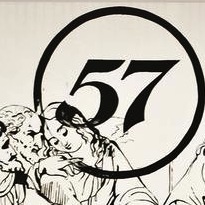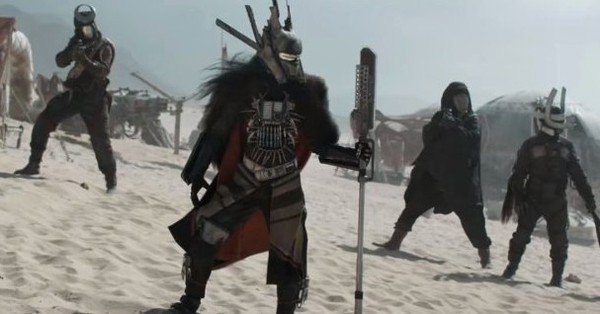Given that the last half year has given us three of the most important recent entries in Star Wars history (The Last Jedi, the Rebels series finale, and now Solo) I’d like to muse for a few paragraphs on where we find ourselves in the Star Wars universe, both the still transporting internal universe of the Galaxy far, far away, and the the more pedestrian, and, some might say, mercenary world of the Lucasfilm/Disney content machine. I’ve broken my musings down into a handy list.
First of all, I’d like to put my cards on the table: I’m a lifelong Star Wars fan, having been born less than a month after Return of the Jedi was released. I LIKE the worlds of Star Wars, both the story world and the merchandising juggernaut. I spend as much time reading reviews of Star Wars Lego sets as much as of Star Wars movies and TV shows. I’m a dedicated fan of the TV shows (Clone Wars, Rebels) as well as all the movies. I read the books and comics from time to time, but am not a completist when it comes to written Star Wars stories. It’s what’s on the screen (both big and small) that matters to me.)
1. The Last Jedi proved that Star Wars is no less important AND no less divisive to fans than the prequels
I’ve spent too much digital ink on TLJ already, and coming out of January felt honestly exhausted from talking and writing about it. Suffice it to say that the fallout from Johnson’s controversial Episode VIII proved we still REALLY care about Star Wars. Overall, the oldest fans seemed the most and the youngest fans the least bothered by Johnson’s creative choices, but there are exceptions to this. There is definitely a neo-traditionalist strain among younger millennials that felt Johnson had betrayed the heart of Star Wars. It’s interesting that the loudest of these (at least that I heard), were born during the Prequels Era, not the OT Era.
Whatever that case, it’s arguably a good problem to have Star Wars be something that’s passionately discussed because of its polarizing ideas and not because of questionable casting/acting, as was often the case with the prequels. I’d rather discuss the proper response to war profiteering or how to cope with educational failure than rehash the whininess of Hayden Christensen’s line delivery any day. The fact that Johnson and co. made me think and wrestle at the level of Rey’s and Luke’s and Ben’s choices and attitudes, and never at the level of Daisy’s or Mark’s or Adam’s acting is an important step forward in keeping Star Wars alive in fan’s lives. One of the greatest failures Star Wars could experience is that fans simply stop caring what happens in to those characters in that galaxy.
Thus, Coming out of TLJ, it seemed that moving forward, Star Wars would be something we discussed for its big ideas and complicated characters, even when we vehemently disagreed with those ideas and character choices. Rebels and Solo test this theory a bit, with mixed results.
(******SPOILERS FOR REBELS S4 HENCEFORWARD)
- Rebels concluded with welcome surprise and (a little too much) mystery.
Dave Filoni’s two Star Wars shows (and not the films) have always been the central place for exploration of the Force and its mysteries. Filoni outdid himself in the fourth and final season of Rebels: Force-sensitive Loth-Wolves, the return of the Father-Son-Daughter Force-Trinity, and the insane, interdimensional “void world”. With this last element, Filoni toed the line between dazzling imagination and narrative cheating. Ezra’s salvation of Ahsoka was welcome to those of us who want to keep her character around, but felt like something Star Wars has never allowed itself to do before: save characters through time travel. In the end, Filoni showed restraint in not having Ezra save Kanan, nor giving in to Palpatine’s Back-to-the-Future-style temptation to spend time with his parents in the past.
This may be a matter of personal taste, But I’d prefer that Star Wars stay out of the time travel business. Luckily Filoni makes the time travel stuff the penultimate plot of the season/series, and focuses front and center on the long-awaited iberation of Lothal and the showdown with Thrawn as the final conflict. Having the Wolves and Purgills be the secret weapon that defeats the imperials in the end brings a wonderful fulfillment to the theme of Ezra’s special Jedi power of being able to connect with and relate to nature, especially the fauna of Lothal. The images of giant space whales destroying ships joins the original Purgill episode as one of the most visually stunning in the show.
I’m left wondering, however, whether the choice to have both our main hero, Ezra, and our main villain, Thrawn, disappear into the Galaxy, was a responsible one.
I do love the idea, however, that somewhere out there Sabine and Ahsoka are having adventures searching for Erza across the Galaxy. And by including a coda narrated by Sabine that brings us past the Battle of Endor, Filoni managers to answer pretty much all of the “where are they now” questions that fans have been collecting over the course of Rebels (and Clone Wars, really)–except, of course, one of the “where are they now” we most care about, namely, “Where is Ezra?”!
Back in 2013, after the Clone Wars TV show ended, and The Force Awakens and Rebels was announced it felt like we were finally done with the Prequel Era of Star Wars, an Era that had been going on in one form or another since 1999. And now, in 2018, on finishing the Rebels finale, one is left with the feeling that the Original Trilogy era is finally, really, over. We know the fate of all the major characters from the Prequels, Clone Wars, and Rebels up through Return of the Jedi. Though we’re already two movies into the sequel trilogy, it feels like we’re finally ready for the Sequel Era to begin. The recent announcement of Filoni’s third show, Resistance, seems to confirm this distinct era shift. I love this feeling, honestly. The Original Trilogy Era is still my favorite Star Wars Era, but I’m excited to be moved forward. No more Rebels vs Empire. We’re entering the new frontier: the origins of the First Order in the Unknown Regions, Leia’s formation of the Resistance, Luke’s Jedi Academy, the as-yet-mysterious-machinations of Snoke: it’s a new world, folks!
- For all its fun, Solo feels like nothing new on first viewing.
(***”SOLO SPOILERS HENCEFORWARD)
Alas, it turns out it’s the same old world. At least it is in the diverting, if unessential, new Solo: A Star Wars Story. Solo turns out to be everything I expected from it when I was being slightly hopeful: fun quips and derring-do from fan favorites in younger guises. In a way, it’s of a piece with Lucas’s prequel trilogy: though the backstories we heard/knew of are filled in colorfully, there’s a lack of narrative necessity to it all. As fun as the first meeting of Han and Chewie in the mud-prison on Mimban is, we already sort of know this all happened. This doesn’t make it bad, it just makes it a bit of an unrequested detour after the promises of the Rebels finale and The Last Jedi.
My favorite parts of Solo are those concerned with two totally new characters: Kyra and Enfys Nest. As other reviewers pointed out, Kyra’s character feels a bit inconsistent over the course of the film, but her final decision, and the truly surprising reveal of her boss/new ally Maul made Kyra one of the most interesting characters in the film for me. The other character, the Marauder/proto-rebel Enfys, is probably the most sure handling of a new character: she swoops into the film with drive and confidence, showing herself a formidable opponent to all parties in the film. The reveal of who exactly is under her very cool mask was the other genuine surprise of the film. If I had to quibble, I’d say that we have gotten at least one too many origin-of-the-rebellion moments in Star Wars content, but maybe that’s kind of the point. The rebellion was begun in many places, by many players.
The more I think about it, the more I find that what is most enjoyable about Solo is that it takes place in a part of the universe we know exists, but seldom think to focus on: the criminal syndicates and the freelancers who bounce between them. When we think of major organizational conflicts in the Galaxy, they usually boil down to three: rebels vs Empire, Jedi vs, sith, and, between these two, the intramural conflicts of the bounty hunters. But in Clone Wars, Filoni introduced us to the warring crime syndicates: Black Sun, Pyke, the Hutts, etc. The reason it’s so satisfying to find that Maul is behind Crimson Dawn is that we already saw his prowess in this world in Clone Wars Season 5, when he and Savage Opress took over Black Sun. Enfys adds another dimension to this world: if Solo’s syndicates we’re the drug-gangs of The Wire, Enfys would be Omar, with a laser-pike instead of a shotgun. Or, to pick a more classic example, this is the first Star Wars movie to draw as much from The Maltese Falcon as it does from Flash Gordon.
So where does this leave Star Wars as a whole? Overall, I still think we’re moving into the Sequel Era proper. But Solo has kept the limbo between the original two trilogies open just enough that I’m afraid Lucasfilm will continue to mine the era for its lingering delights instead of moving on. Do I want to see another Solo movie that follows Maul and Kyra as its main villains? Of course I do (heck, make it Enfys vs Mail and dispense with Han entirely, I don’t care!). It would feel like subplots from Clone Wars and Rebels were continuing on the big screen. Given the rumors, I think it’s likely Lucasfilm is all set to make another two Solo films if this one does well enough at the box office. But they probably shouldn’t. Let have more Sequel-Era adventures; let’s make Episode IX the best it can be.
In the end, I’m glad Lucasfilm was brave enough to make the last two Star Wars Stories. Solo and Rogue One were interesting experiments, though the results were mixed. Solo sadly never rises to the level of the transcendent moments in Rogue One: Galen’s message to Jyn, the beauty of Chirrut’s faith, or the Vader hallway massacre. When Rogue One was over, the story was clearly finished, with real pathos and real closure. Solo feels like a TV episode that can’t help but add in some cliff hangers to get you ready for the next one. That may be good marketing, but I’m not convinced it’s good storytelling.

